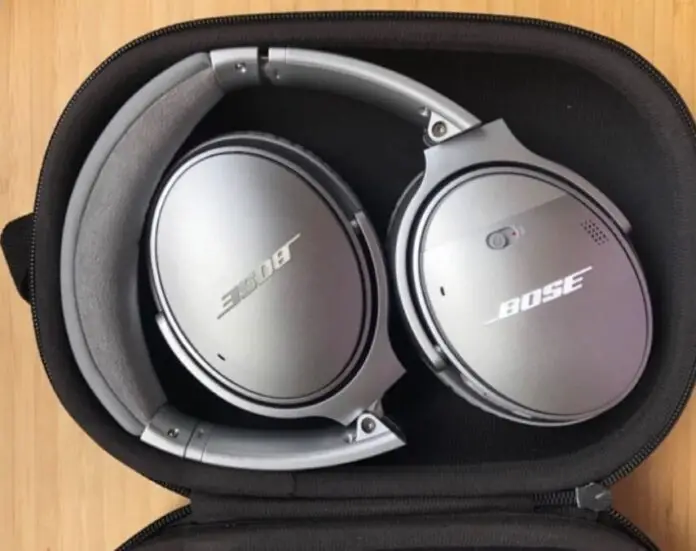The Bose QuietComfort 35 II (or QC35 II) is the second version of the QC35 released in 2016. This new version, launched at a price of $420, does not drastically change the situation. Only one thing has been added: an additional control button. There are some other changes that eyes can’t see as they have been mostly focused on software. So lets dive into this premium headphones’ technical details and overview.
Table of Contents
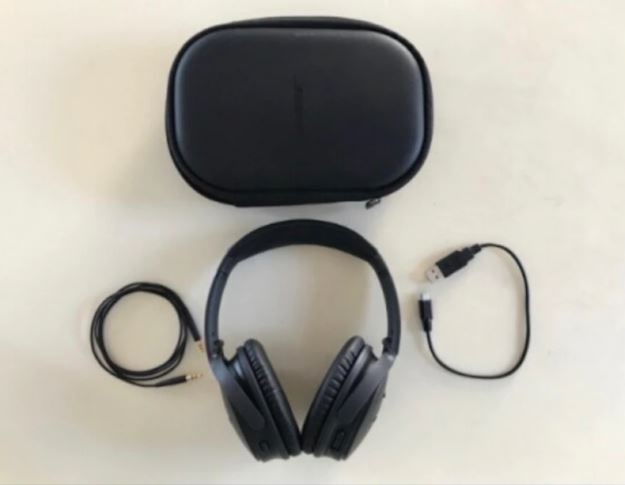
Bose QuietComfort 35 II: Pros and Cons
Pros
- Overall balanced and musical sound reproduction.
- Clarity and definition of the voices.
- Airy and well-readable soundstage.
- Effective active noise canceling.
- Very easy to use, multilingual vocal indications.
- Compact, solid, first-class comfort.
- Great battery life, whether wired or wireless.
Cons
- Basses a little too forward and which would have deserved more impact.
- High Bluetooth latency.
- 2.5 mm micro jack connector.
Design and Ergonomics
The Bose QC35 II is similar in all respects to its predecessor in terms of design, manufacture, feeling of comfort, supplied accessories, connection possibilities and autonomy. You will find the analysis of all these aspects in the QC35 test.
In short, the QC35 II puts the emphasis on comfort, discretion and compactness. Even if it is sometimes only due to very small details, this model is still the best performing on the market on these three points.
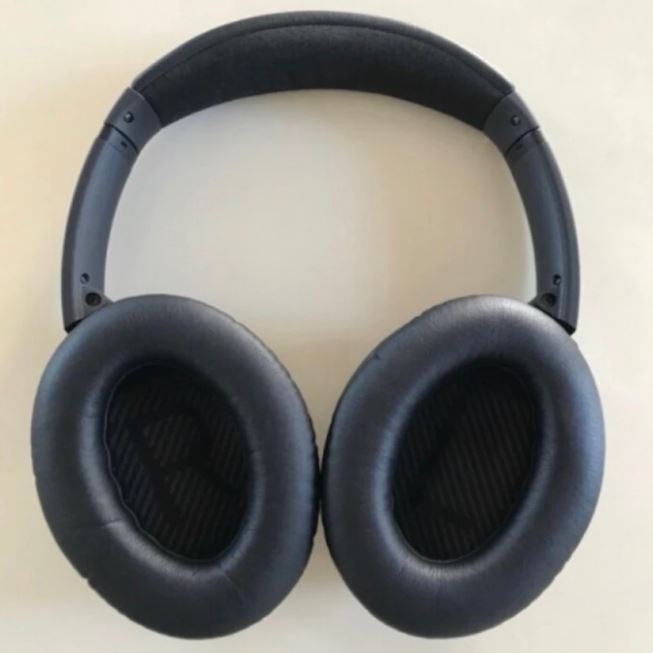
The QuietComfort 35 II also shines with the user experience it offers.
We appreciate the great ease of use, the presence of complete and multilingual voice prompts, the speed of the wireless connection (with or without NFC chip), the possibility of very easily connecting two devices simultaneously and the autonomy Solid over 20 hours with all options enabled.
Some may deplore the disappearance of the batteries in favor of a non-removable battery or even the proprietary 2.5 mm sub mini-jack connection, which greatly limit the possibilities of replacement.
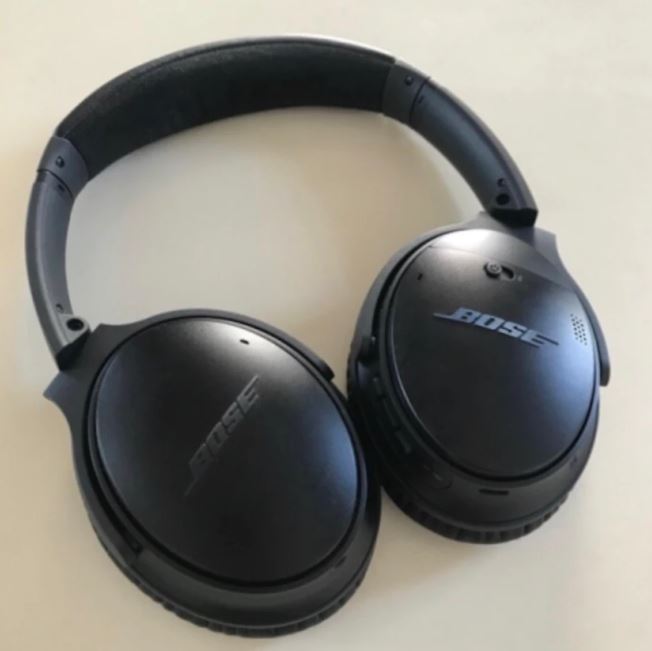
The only change is at the level of the control possibilities. In addition to the basic buttons located under the right atrium (management of music playback, calls, volume, navigation between tracks, etc.), there is now a single button on the left atrium, called the “Action button”.
It is assigned by default to the activation of Google Assistant. In practice, it must be admitted that this integration is far from being revolutionary, since the central button of the right headset already allowed its activation and that it is always necessary to go through a smartphone.
Connectivity
If you are addicted to Google Assistant, this novelty still offers more fluidity in the interaction: with a single quick press, you can read new notifications, query the assistant or respond to notifications via a long press for that you are talking about.
It is also interesting if you are an iOS user, because the central button only allows the activation of Siri. If you don’t care, this famous button can also be assigned to change the level of noise reduction through the Bose Connect mobile application.
Microphone
No changes in the performance of the onboard microphones for the hands-free function. They still do such a good job of ensuring good voice intelligibility under most circumstances.
The tight directivity of the microphones as well as the efficiency of the noise reduction algorithm greatly contribute to this performance. However, strong winds and extremely noisy places get the better of the on-board microphones: in this case, it is better to go directly through the smartphone.
Sound
No changes on the horizon for this QuietComfort 35 II in terms of sound performance and active noise reduction. Once again, we invite you to consult the QC35 test to find out more. In order to corroborate our statements, here are comparative measures:
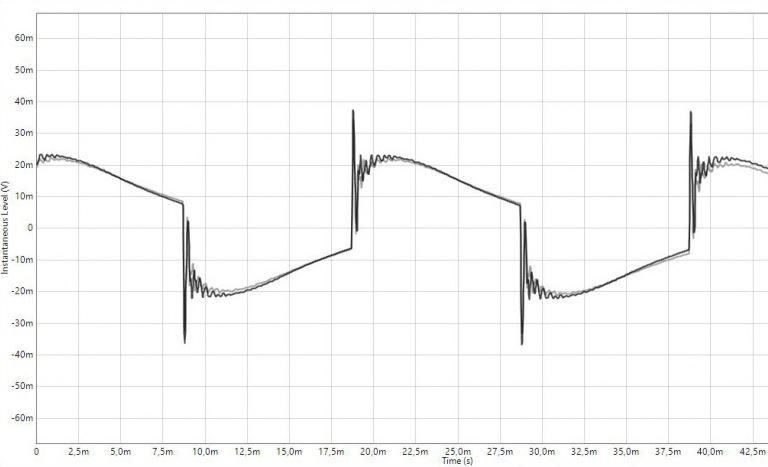
The small differences that you can see on certain measurements are mainly explained by differences in wear of the pads between the helmets and also by some very small differences in adjustment and calibration when leaving the factory (in particular for the RBA, more sensitive on this point).
As for wireless communication latency, our listening tests and measurements raise two key points: Bose has improved wireless communication latency since the launch of the QC35 (most certainly thanks to updates of firmware that have appeared since our initial test) and there is a small perceptible difference between the QC35 and the QC35 II, to the disadvantage of the latter.
In practice, with the QC35, you can follow a series or a film without too much difficulty (in particular thanks to the automatic compensation in Bluetooth on certain mobile applications such as Netflix, YouTube or Facebook).
With the QuietComfort 35 II, the delay becomes more noticeable and more annoying to comfortably follow your video, even with this compensation. If your player allows it, you will need to reduce this delay to be completely comfortable.
Bose QuietComfort 35 II: Conclusion
Unsurprisingly, this second version of the Bose QC35 doesn’t really change the game. In fact, nothing justifies the purchase of this model compared to the old one, the previous model often being offered much cheaper.
If the use of Google Assistant punctuates your days and you absolutely insist on this activation button, or even if the quick control of the level of active noise reduction is essential for you, you will unfortunately have to pay a high price yet this high quality headphones surely will satisfy all your needs overall.
Current Best price on Amazon: $344.99
Price History on Amazon
| Months | Lowest Price on Amazon |
|---|---|
| Sep 2022 | $298.99 |
| Oct 2022 | $299.98 |
| Nov 2022 | $299.99 |
| Dec 2022 | $316.99 |
| Jan 2023 | $290.00 |
| Feb 2023 | $299.00 |
| Mar 2023 | $325.00 |
Bose QuietComfort 35 II: Specs
| Headphone | Firm |
| headphone Type | Circum-auricular |
| Weight | 234g |
| IP certification | CN |
| Removable battery | Nope |
| Cable length | 1.2m |
| Detachable cable | Yes |
| Wireless connection | Bluetooth |
| Supported Bluetooth codecs | AAC, SBC |
| connectors | micro-USB, sub mini-jack, mini-jack |
| Autonomy | 20 hours |
| Handsfree | Yes |
| Active noise reduction | Yes |
| Listening to the environment | Nope |

